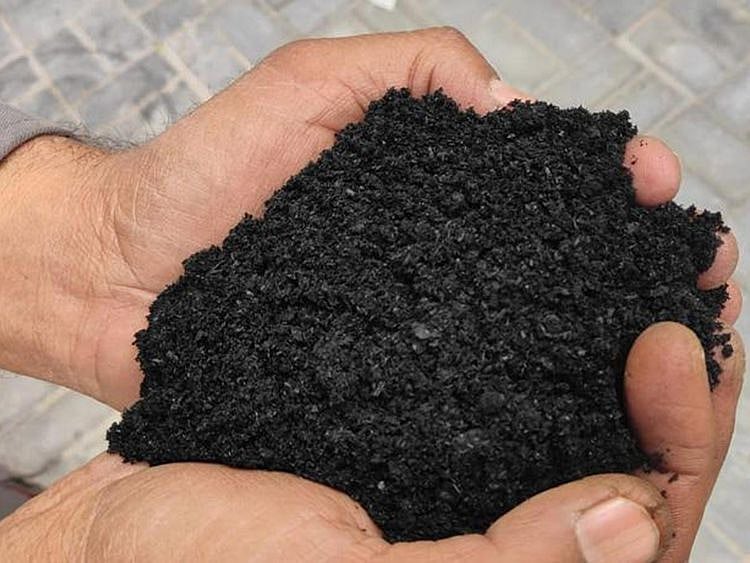Now, 'miracle soil' biochar from camel dung in Dubai
Water-holding fertiliser from manure can be used in desert environment to help grow plants

Dubai: A collaboration in Dubai has started the industrial-scale production of biochar from camel dung.
Biochar, short for biological charcoal, is made from the thermo-chemical conversion of biomass - such as animal manure - into a charcoal-like material that boosts the properties of soil for agriculture.
Dubai-based German firm Viqa Investment has announced its cooperation with the Emirates Factory for the Production of Camel Milk and Its Derivatives (Camelicious) to begin producing industrial biochar using camel waste “for the first time in the UAE”.
Sustainable solution
“This innovative process of turning camel manure into fertile soil not only mitigates environmental impacts, but also generates clean biological energy. This renewable energy source plays a pivotal role in meeting our farm’s energy needs while advancing our overarching sustainability goals."
“Our ultimate goal is to restore arid landscapes, transforming them into fertile, cultivable lands to enhance food security, promote agriculture, and more,” said Adam Viqa, Chairman and CEO, Viqa Investment.
The endeavour employs ‘Carbo-FORCE’, a German technology that carbonises residues into energy and biochar. This innovation was recently showcased by the UAE’s Ministry of Industry and Advanced Technology at the UN Climate Change Conference (COP28) in Dubai.
The technology has been introduced at Camelicious.
‘Miracle soil’
“The resultant biochar is akin to a ‘miracle soil’, initially utilised by South American indigenous communities over a thousand years ago,” said Viqa. The utilisation of organic waste materials, such as those generated by large urban centres, can thus play a pivotal role in greening and revitalizing these once barren desert landscapes, Viqa said.
“It possesses the unique capability of water retention, making a significant contribution to water conservation efforts. This innovation plays a vital role in reducing greenhouse gas emissions, yielding multiple environmental benefits.”
Primarily, biochar mitigates the need for landfills, which emit methane, a greenhouse gas that contributes to climate change.
Agricultural self-sufficiency
The process of biochar production not only permanently sequesters carbon, but also harnesses renewable energy in the form of thermal and electrical energy, replacing fossil fuels at the camel farm. This establishes a foundation for eliminating organic waste, reducing carbon dioxide emissions, producing and utilising renewable energy, and creating biochar, which increases soil’s water-holding capacity for organic agriculture in the desert.
Sign up for the Daily Briefing
Get the latest news and updates straight to your inbox
Network Links
GN StoreDownload our app
© Al Nisr Publishing LLC 2026. All rights reserved.